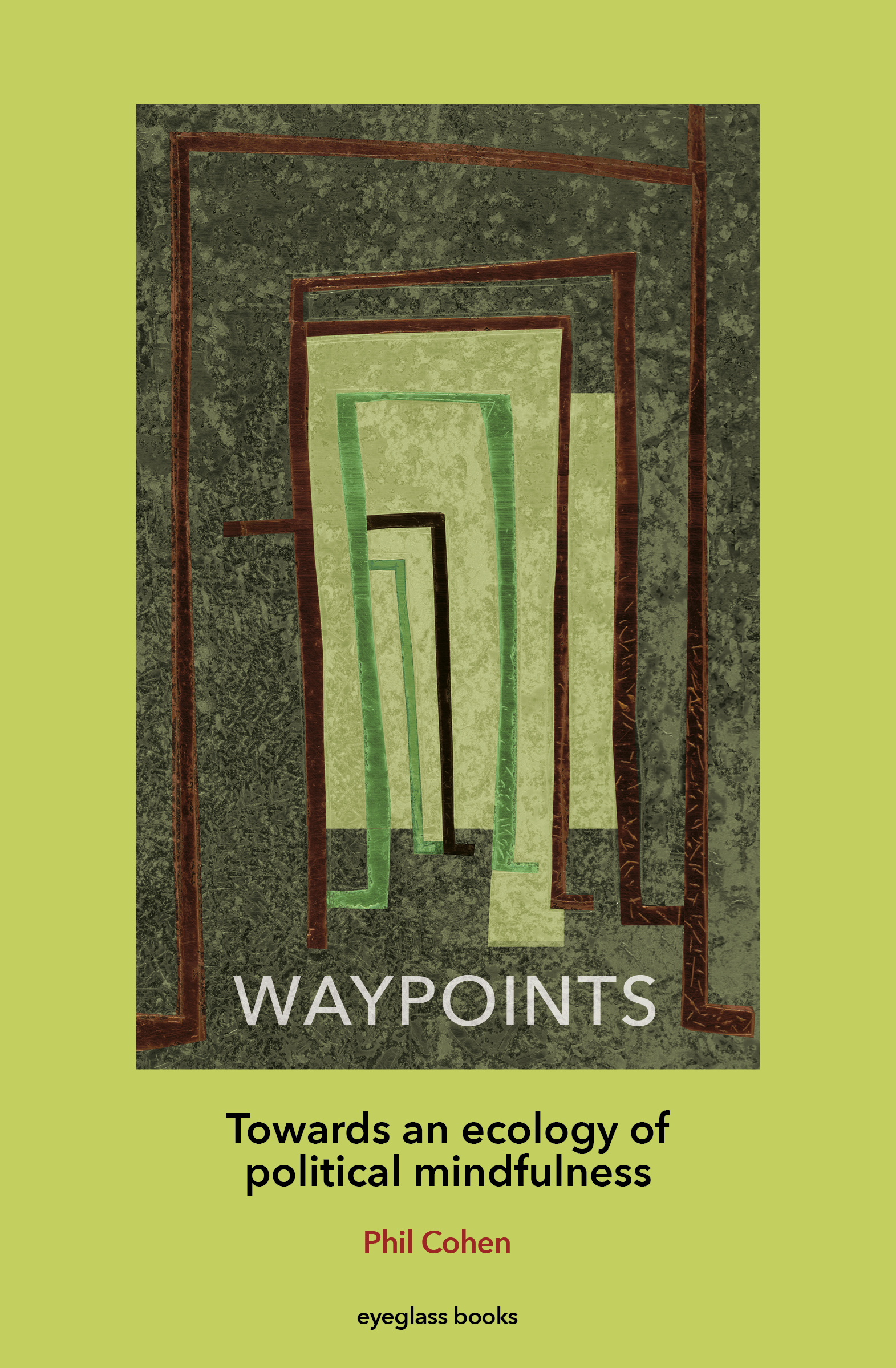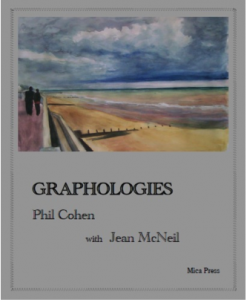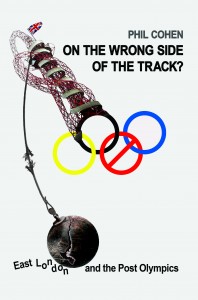Some reflections on choosing a leader
Like many of my friends and colleagues I am a fully paid up member of the Groucho Marxist tendency. I would never join a political party that would have me as a member. Until now. Because like tens of thousands of others I have now paid my three quid to register to vote in the election for a new labour leader, specifically because I did not want a New Labour leader to be elected. After decades of voting Labour with gritted teeth, because they were the least worst option (that cynical Churchillian definition of democracy) and without any hope or expectation that their policies would produce any fundamental shift in the balance of power and wealth in our society, I have at last taken the plunge and pressed the submit button to vote for Jeremy Corbyn.
I did so with gritted teeth because he is the least worst option and not in any hope or expectation that he will lead the Labour Party to power at the next election. Indeed it is clear that he entirely lacks the personal skills or policies to unite the different wings of the party, or to give a convincing performance as a leader of the Her Majesty’s Opposition and Prime Minister in waiting. But what he clearly does articulate is a diffuse longing across wide swathes of the electorate for a different way of doing politics, a way that is more open and democratic, not controlled by party machines kowtowing to focus groups and the mediocracy, and responsive to a range of concerns about the causes and consequences of social inequality. In a nutshell he would make a good spokesperson for extra-parliamentary opposition to austerity politics, but will be a disaster as leader of the PLP.
So why did I vote for him? Why did I tick his box and press the ‘submit’ button? As a matter of fact ‘submit’ is a tricky little word. The dictionary definition offers its meaning as : to give over or yield to the power or authority of another; to subject to some kind of influence ; to present for approval or consideration; to state or urge with deference. Of course I wanted to exert some influence on the outcome of the election, and for the Labour Party to take my views into consideration but certainly not out of any sense of deference or of surrendering to its authority! So exactly what was I hoping to achieve?.
Firstly. the act of registering was primarily to affirm the principle that political decision making should be plebiscitary and involve as many people as possible and not just a minority of activists or an elite of cadres and professional politicians. Of course on- line voting is not the same thing as direct democracy, but it can inject some element of public participation into what is otherwise a pretty inert and self regarding process. The digital commons can certainly provide a house for pop up parliaments, a time- delimited space of deliberation and debate which is neither fully public, in the sense of being accessible to all irrespective of their views (like a referendum or poll) ), nor the private preserve of an elective affinity group. The boundaries of this discoursive space are inevitably difficult to define and it is not surprising that the party got in a bit of a muddle and ended up excluding many of the people it is actively seeking to recruit, e.g. Greens and Ukippers..
This could have been largely avoided if those registering had been required to jump through a few more hoops, like having fill out a questionnaire about their values and beliefs and their reasons for wanting to participate in the election. This would have weeded out all but the most determined entrists.
In general the advent of social media into the political arena has created a potential platform for connecting particular demands and single issue campaigns to a wider sense of dissatisfaction at the failure of the political class system to keep election promises and deliver the goods. Used in a strategic way social media can serve to enfranchise groups, like young people, who are alienated from institutionalist politics, putting into circulation more or less populist memes, which are, however, highly unstable in their ideological significance and are open to rival articulations by the Left as well as the Right. Social media are not a panacea for dealing with withdrawal from civic engagement, they do open up new spaces of deliberation which bypass some of the bottlenecks created by bureaucratised forms of representative democracy.
Populism and Charisma
It is at this point that my rationale for voting Corbyn comes into play. We can see a coalescence of diffuse popular concerns in his manifesto which does not appear in any of the other candidates statements. This does not necessarily mean that his programme is ‘populist’ in either form or content. His campaign programme is by definition an intervention in the institutional politics of the Labour Party, not an emergent expression of a grass roots social movement seeking political representation, like Podemos. The Corbyn platform brings together a number of traditional left wing causes: neo-keynesian growth economics, a national investment bank, nationalisation of public utilities without compensation, regulation of the housing and labour market to eliminate hyper-exploitation, progressive taxation, a crack down on corporate tax avoidance, abandonment of Britain’s independent nuclear deterrent, and so on. The one explicitly populist feature – ‘people’s’ quantitative easing to finance infrastructure investment, create jobs and modernise the public realm is probably the least plausible plank in his programme, at least in macro-economic terms. In any case it does not explain the surge in popular support for his candidacy. So how do we explain ‘Corbymania’, the fact that so many people, especially young people, who have never been interested in politics before, have flocked to his colours?
In this context one is tempted to reach for the dictionary of sociology and look up ‘charisma’. Weber defines it as ‘a certain quality of an individual personality, by virtue of which he is set apart from ordinary men and treated as endowed with supernatural, superhuman, or at least specifically exceptional powers or qualities. These are such as are not accessible to the ordinary person, but are regarded as of divine origin or as exemplary, and on the basis of them the individual concerned is treated as a leader’. As a form of power, charisma is ‘legitimized on the basis of a leader’s exceptional personal qualities or the demonstration of extraordinary insight and accomplishment, which inspire loyalty and obedience from followers’.
Leaving aside its masculinist construction for a moment, does any of this apply to Corbyn? In Weber’s concept the exercise of charismatic authority depends on thepublic display of an aura of exceptionality, whether of vision or foresight, linked to an inspirational presence capable of mobilising devotion amongst followers. It is easy to see how it applies to cult followings of mystics, prophets, messianic politicians, oracular poets, and rock stars. But Jeremy is none of these. He is no demagogic orator. He is no public intellectual with a common touch. He doesn’t do hwyl. His vision is couched in decidedly prosaic terms. But that may be precisely the reason for his appeal. Weber thought that charismatic authority was so unstable that it had to become routinised through some process of institutionalisation – through the formation of priestly castes or intellectual elites, for example. What he did’nt reckon on, because he was writing at a time before the mass media, PR and the whole apparatus of fame had become properly established, was that charisma would no longer depend on a metaphysics of presence, and its routinisation could take the form of a perpetual recycling of ‘inspirational’ images. What is exceptional about Corbyn is that he is not part of this political spectacle and the hype machine run by party spin doctors, and to that extent is seen to be uncorrupted by power. His moral authority is anti-charismatic and rests on his perceived integrity of purpose, which puts political commitment above personal ambition and shuns sound byte rhetoric like the verbal plague it is.
An alternative hypothesis, given his age, is that he is seen as some kind of elder statesman, and appeals to youth as an ideological mentor, a ‘wise old man’ according to the Jungian archetype. Certainly in a post- patriarchal society the yearning for sympathetic father figures is unabated. There are several recent examples of Leftist rebels who have been the bane of the political establishment all their lives but who are welcomed into the pantheon of ‘Grand old Men (and very occasionally women) in their later years. But Jeremy Corbyn is no Tony Benn or Eric Hobsbawm! He is however all too easy to demonise as a loony lefty, and the Labour establishment have been quick to join the Tory press in orchestrating a moral panic around his candidature. I think that this is probably the key to his popularity. He is a political anti-hero and the more mud that is thrown at him the higher he rises in public estimation.
From Vocation to Career : the organic crisis of the political class
Weber’s theory of charisma was first elaborated in his famous lecture on ‘Politics as Vocation’ and for a very good reason. He want to make a distinction between those who live for politics, for whom politics is a special inner calling or avocation and whom he associates with the exercise of charismatic authority and those who live off politics, who pursue it as a professional career, associated with the exercise of bureaucratic authority. This distinction between vocation and career is rather muddied in Weber’s account, and as we will see they are often conflated in everyday parlance. Moreover the distinction is not confined to politics, it just as much belongs to the personal sphere. These are two narrative grids thrown over the life course, unfolding quite distinct principles of existential periodicity and predicament. Vocation unfolds as an inner directed quest or drive for an authentic self, primarily through the realisation of a special gift, talent, or calling. It is associated with the mastery of artistic or spiritual disciplines and with various forms of service. Vocation operates largely within the framework of a moral economy of worth, in which the value of the work performed under its sign is the means of satisfaction it produces. Authenticity is its benchmark. Career, in contrast, unfolds as so many steps up a ladder of personal ambition, marked by increments of status and income, often correlated with the achievement of professional qualifications and other so called performance indicators. Career operates entirely within a market economy of worth, every promotion is indexed to the competitive value of the work within a segmented labour market. Career is other-directed, it is driven by the desire to outperform one’s peers. Success is its benchmark.
The professionalization of the political class, the transition from politics as vocation to politics as career, has been well documented. The narrowing social demographic, the extinction of the ‘colourful’ and ‘eccentric’ amateur or conviction politician, such as Dennis Skinner or Leo Abse, and their replacement by party robots is much lamented by commentators across the political spectrum. However public disenchantment with Westminster has much more to it than this. It is not even a reaction to the constant disclosure of endemic corruption, the expenses scandal, the paedophile ring etc. It is about a much deeper disconnect between the culture of institutional politics and the culture of everyday life and livelihood as it is experienced by most citizens in Britain today.
The organic crisis of the political class consists in the fact that the Westminster regime lacks popular legitimacy, not only north but south of the border, and a new political culture has yet to be born. This is part of a wider crisis of representation, a disconnect between the authorised road maps of social aspiration disseminated by the state (especially by the education system) and the actual territories of blocked, deferred or dislocated transition to full participation in civil society inhabited by large sections of the electorate.
To understand what is happening here we have to look at a broader set of social changes. While careerism flourishes amongst a small elite, the structures which supported lifelong ambitions and steady progress up a professional ladder have collapsed for large sections of the middle class. Meanwhile vocation has been thoroughly instrumentalised and marketised, so that it now refers to narrow forms of training and qualification intended to deliver a flexible and docile workforce for the knowledge economy. This is often via what is redescribed as ‘apprenticeship’, and covers internships as well as junior, short term contract positions. In response vocation has been reinvented as an alternative life style for a section of the ‘creative class’ that chooses a free lance, portfolio mode of working over careers in the corporate sector. As for the de-industrialised working class, concentrated in underfunded public services and low wage, low skill sectors of the economy zero hour contracts and short term on-the-job training have swept aside the residual culture of trade apprenticeships which hitherto provided some sense of ownership, security and pride in the job.
Enter the precariat
The emergence of a ‘precariat’ thrown up by the impact of globalisation on local labour and housing markets has been heralded as a new and potentially revolutionary political force, bringing together a multitude of groups who have good reason to be disaffected with the political economy of neo-liberalism and whose very existence dramatises the failure of Social Democracy. This includes NEETS, the long term unemployed, those on welfare or disability benefits and state pensioners, ‘generation rent’ – the, middle class young adults who cannot afford to get on the property ladder or are unlikely to obtain a permanent well paid job to qualify for a mortgage, plus all those performing contingent labour , on short term, part time or‘flexible’ contracts. It is certainly the case that all these groups experience a great deal of chronic insecurity in their everyday lives. However this may take many different forms and produce different responses. Ontological insecurity may result in acute anxiety and depression but also mobilise a collective response in the form of identity politics. Material insecurity and the resultant foreclosure of life plans may yield to fatalism, nihilism, short run hedonism – living for kicks – or to frenetic entrepreneurial activity in the pop up or hidden economies. These responses are over-determined by the fact that the social and cultural capital required to sustain struggles of long duration and support collective resilience in the face of set backs, insecurity and hard times has been eaten away by the aspirational rhetorics of competitive individualism. Now that we are all supposed to be authors of our own lives, who have we to blame but ourselves if the script does not turn out as we were led to wish it would? As a result material and ontological insecurity are much more likely to converge and reinforce their damaging impact.
This has produced some contradictory effects. On the one hand there is a pervasive desire for quick fixes to very intractable socio-economic problems coupled with a profound pessimism about whether any of them will work. This is turn traps the political establishment in a double bind : they have to offer such fixes to become electable even though they may not believe in their efficacy, a lack of conviction which then further alienates the electorate. On the other hand there is a retreat into a discourse of common sense ‘realism’ that combines elements of moral and market economies of worth in a peculiarly perverse way. We can see this happening in the public debate around austerity, debt and the financialisation of every aspect of social life. And,in particular, in George Osborne’s recent espousal of ‘Micawber’ economics.
Debt and its dual economy of worth
The key precept of the moral economy is most succinctly stated in Polonious’ advice to Laertes in Hamlet :
Neither a borrower nor a lender be;
For loan oft loses both itself and friend,
And borrowing dulls the edge of husbandry.
Shakespeare is here drawing on a long theological tradition in Christianity which condemns usury and is also found in the Old Testament. As Exodus puts it ‘ if you lend money to my people, to the poor among you, you shall not deal with them as a creditor; you shall not exact interest from them.’ This was the rationale of the Church of England’s recent intervention against Wonga and other payday loan sharks on account of the extortionate interest rates they charge to the most vulnerable sections of the working poor.
Borrowing and lending are the life blood of the banks and financial services and capitalism could not survive without it. After all it was speculation on sub prime mortgage debt that triggered the financial crisis and recession of 2007/8. Even in so called ‘normal’ times. all advanced economies run high levels of national debt as well as extracting large debt repayments from their trade- and- aid deals with developing countries. We have just seen the political economy of debt revealed in all its brutality in the recent negotiations between the EU troika and the Syriza led Greek government. Equally household debt and student loan debt has reached unprecedented levels and is contributing to a public mood of chronic disquiet about personal futures.
Osborne’s restatement of the moral economics of the Micawber principle – that earning more than you spend brings happiness and the reverse brings misery- is designed to address these concerns. As he put it:
‘a settlement where it is accepted across the political spectrum that without sound public finances, there is no economic security for working people; that the people who suffer when governments run unsustainable deficits are not the richest but the poorest; and that therefore, in normal times, governments of the left as well as the right should run a budget surplus to bear down on debt and prepare for an uncertain future’.
Underlying this move is a tacit appeal to the notion that to get into any kind of debt is a moral failure, which brings shame on family and community alike. To be enslaved by debt is to be less than fully human. The only honourable course to follow in life is therefore to liberate oneself from any social or economic transactions that might incur debt and instead become self sufficient. It is no coincidence that Shakespeare has Polonious immediately cap his advice to Laertes by spelling out its moral implication in the following terms:
‘This above all: to thine own self be true,
And it must follow, as the night the day,
Thou canst not then be false to any man.’
So to lead an authentic, fully human existence, to sustain an integral sense of identity and be honest in your dealings with others you must be free of debt and its corrupting entanglements. The Left as well as the Right have taken up this principle, it can be found active in the formation of the Co-operative movement and in the anarcho-syndicalism of radical artisans as well as in Credit Unions and social corporatism.
This is one response to the fact that we have a market economy which thrives on debt and a moral economy which condemns it. But there is another perspective which starts from a very different version of moral economy. It is one premised on the principle of reciprocal gift exchange : every gift incurs a debt, which can only be repaid by another gift. Of course, there are gifts without any such strings attached, such as anonymous donations of money or blood, and there are also false gifts which enslave or establish relations of dominance or deference. But balanced or symmetrical exchange networks provide an infrastructure for everyday cultures of mutual aid which have enabled many disadvantaged communities to survive the insecurities of hard times. Baby sitting neighbours children, lending the lawn mower or borrowing the proverbial cup of sugar from next door, these elementary acts of give- and- take have also provided an armature of human solidarity to support struggles for a better, less insecure, life. David Graeber has argued, somewhat tongue in cheek, that these practices amount to ‘actually existing communism’ and certainly their current erosion is major cause for concern, and not only on the Left. Attempts to formalise a sharing economy through the introduction of time bank currencies for the exchange of services have proved no substitute for informal reciprocities. The introduction of marketised idioms into these transactions only tends to confuse or alienate people and leads to trading practices which mirror the competitive individualism it is designed to re-place.
The real issue is how to scale up from any localised mutual aid system to wider translocal networks that are sustainable over time. Again social media can facilitate this process but are no substitute for it. We clearly need more social experimentation to develop and test a flat democratic management structure as an alternative to the hierarchised model of party bureaucracy with its top down command and control apparatus.
Finally, the intricate interplay of moral and market economics which I have briefly sketched has obscured and complicated the whole issue of symbolic debt. What parents and children owe one another, what each can legitimately depend on and bequeath to the other is easily disavowed or ignored as a purely private matter to be sorted out within the family. Nevertheless it remains an important factor in the reproduction of inequalities structured around the transmission of wealth, material assets, and cultural, social and intellectual capital between the generations. Legacy politics, the question of who owes what to whom, is likely to become an increasingly potent element in debates around national identity at a time when the issue of inheritance is heavily financialised around private property as well as racialised around access to public amenity and resource..
Final Submission
It turns out then that we not only need a strategy to challenge the dominant common sense of austerity politics, but to address the issue of precarity and debt by freeing moral economics from its current forms of marketisation. And we also need to create a new housing of the commons that enfranchises all the disparate groups, white and black, men and women, middle class and working class, young and old, who are being deprived of their human entitlement to a life that has enough adventure in it to make it worth the telling, and enough security in it to make a coherent narration possible. At present we oscillate between the precautionary principles of ‘the risk society’ and the bipolar boom and bust principles of the financial markets.
What the press have described as ‘Corbymania’ is symptomatic of a deep but hitherto largely repressed desire to break free from the tired rhetorics of neo-liberal l political economy and Statist forms of Social Democracy. A Corbyn victory would certainly spell the death of New Labour Blairism and for some of his supporters that might be enough. It remains to be seen whether it will lead to an inevitably doomed attempt to resurrect Old Labour values around ‘little islander’ euro-scepticism and disregard for all the issues that have emerged outside the trade union movement. The suggestion to re-open the mines does not exactly inspire confidence that his approach to global warming is much different from the Tories. However the logic of the conjuncture itself indicates that something quite else might happen. The momentum created by the Corbyn campaign, if it not allowed to dissipate, could profoundly change the party’s relationship to its multiple communities of potential support, requiring the development of a transversal discourse linking site-specific issues of precarity to a generalised critique of neo-liberalism. Corbyn has already succeeded, against all the odds, in returning politics to its proper vocation, which is not as Weber and the other candidates for the Labour leadership think, solely about the capture of power, but, as Hannah Arendt insisted, about creating a stage in which political discourse is the prerogative of all citizens and in which all have an equal voice and stake. On those grounds alone he is the only authentic politician of the bunch.
If politics is the art of the possible, let’s not forget that art is the politics of the impossible. It is because Corbyn’s intervention has opened up the tension between the imagination of a better world and the strangulating realism of the British political class, because his campaign pits its optimism of the will against pessimism of the intellect, that I think it is worth voting for. That is why I put the tick in that box. But having done so, I have absolutely no confidence in the outcome should he win. There’s the rub.
Further reading
Hannah Arendt The Human Condition University of Chicago Press 1958
Luc Boltanski and Laurent Thevenot On Justification:economies of worth Princeton University Press
Luc Boltanski and Eve Chapiello The New Spirit of capitalism Verso 2005
Phil Cohen ‘The Centre will not hold:changing principles of political hope’ Soundings Summer 2015
David Graeber Debt :the first 5000 years Melville House 2011
David Graeber Towards an anthropology of value:the false coin of our dreams Palgrave 2001
Antonio Gramsci Prison Notebooks Lawrence and Wishart 2005
Bruno Gulli Earthly Plenitudes:A study of plenitude and labour Temple University Press 2010
Michael Hardt and Antonio Negri Commonwealth Harvard Press 2009
Martijn Konings The emotional logic of capitalism :what progressives have missed Stanford University Press 2015
Ernesto Laclau Post Marxism,populism and critique (edited David Howard) Routledge 2015
Ernesto Laclau and Chantal Mouffe Hegemony and Socialist Strategy :towards a radical democratic politics London Verso 2014
Bruno Latour and Peter Weibel (eds) Making things Public:atmospheres of democracy SAGE 2006
Bruno Latour ‘The Affects of capitalism’ Progressive Geographies2014
Peter Linebaugh The Magna Carta Manifesto :liberties and commons for all University of California 2008
Isabel Lorey The State of Insecurity: Government of the Precarious Verso 2014
Alexander Mitscherlich Society with the Father Tavistock 1969
Adrian Randall and Andrew Charlesworth (eds) Moral Economy and Popular protest Macmillan 2000
Guy Standing The precariat: the new dangerous class Bloomsbury 2014
Richard Sennett The Culture of the New Capitalism Yale University 2006
E.P. Thompson ‘The grid of inheritance’ in Jack Goody (ed) The Family and Inheritance Cambridge University Press 1974
Raoul Vaneigem The revolution of everyday life (trans D Nicholson Smith) 2014
Max Weber ‘ Politics as Vocation’ in Political Writings Cambridge University Press 1994












